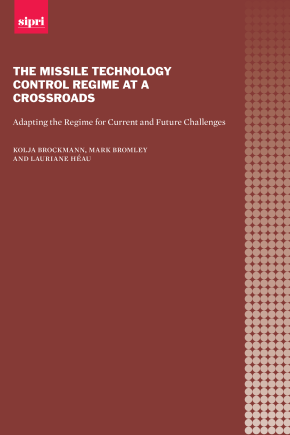The Missile Technology Control Regime at a Crossroads: Adapting the Regime for Current and Future Challenges

The Missile Technology Control Regime (MTCR) is a cornerstone of the non-proliferation architecture for missiles and other uncrewed aerial vehicles. However, geopolitical and technical developments and operational challenges threaten the regime’s effectiveness and create a need for reform in several areas.
The MTCR partners should develop a clear strategy for determining if and how to expand MTCR membership. To increase the number of adherents, partners should pursue reinforced outreach and expand and promote the benefits offered. By improving the transparency of its procedures and deliberations, the regime can make them more understandable for non-partners. The partners can also improve the MTCR’s legitimacy by emphasizing that it provides public goods and helps states to meet their international obligations. The regime can also address the challenges of emerging technologies by focusing on technical deliberations and sharing information and good practices. Through all this, the MTCR must ensure its continued functioning in the face of geopolitical tensions and armed conflict between partners.
This SIPRI Report is the final output of the SIPRI research project ‘Quo vadis MTCR: The Missile Technology Control Regime at a crossroads’, co-funded by the Swiss Federal Department of Foreign Affairs and the German Federal Foreign Office. It provides a comprehensive analysis of current challenges to the MTCR and extensive policy recommendations to the MTCR partners. A concise summary of the report’s findings and its policy recommendations are also available in a SIPRI Policy Brief, see Brockmann, K., Bromley, M. and Héau, L., Adapting the Missile Technology Control Regime for Current and Future Challenges, SIPRI Policy Brief (SIPRI, Stockholm, 2022).
1. Introduction
2. The institutional, procedural and operational structure of the MTCR
3. Membership, adherence and outreach
4. Transparency and regime guidance
5. The legitimacy of the MTCR
6. Addressing emerging technologies through the MTCR
7. Managing geopolitics and conflict between MTCR partners
8. Recommendations to strengthen the MTCR to make it fit for current and future challenges


